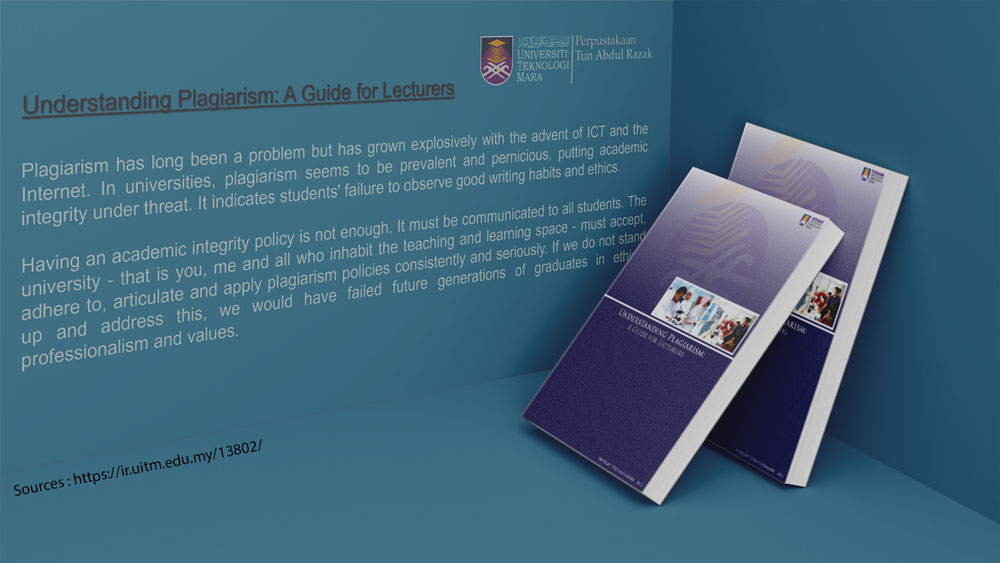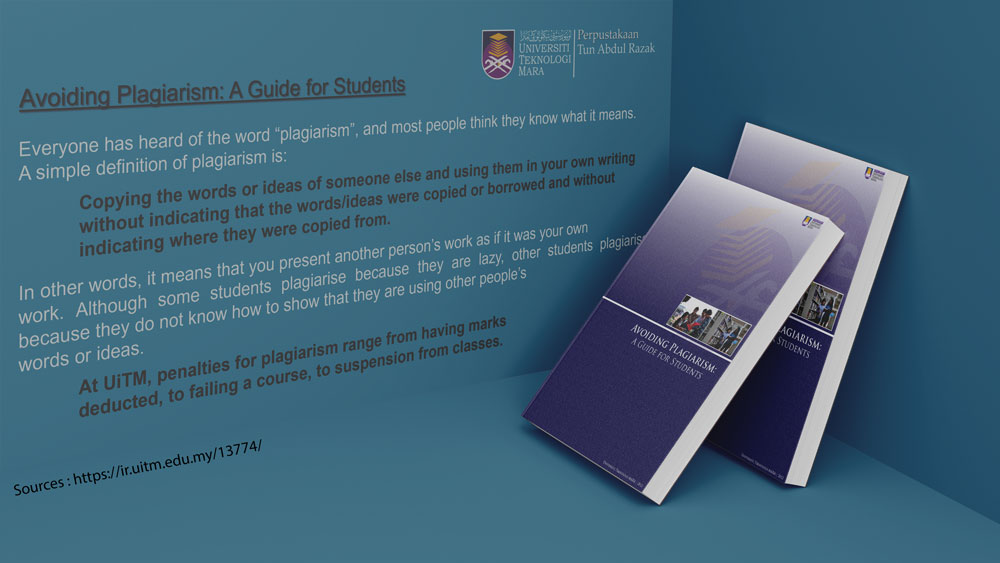Plagiarism is when someone uses someone else's work, words, or ideas and presents them as their own, without giving proper credit or permission. It is essentially stealing someone else's intellectual property and can include copying and pasting, paraphrasing, or using someone else's ideas without giving them credit. Plagiarism is considered unethical and is often prohibited in academic and professional settings.
Plagiarism occurs in different forms :
- Copying and submitting the work of others (including books, articles, theses, unpublished works, working papers, seminars, conference papers, research data, internal reports, lecture notes or tapes, music, computer source code, website content, creative or visual artifacts, designs or ideas) without due acknowledgment.
- Too closely paraphrasing sentences, paragraphs, or themes without due acknowledgment.
- Translating the work of others without due acknowledgment.
- Presenting work produced by someone else as one’s own (e.g. allowing or hiring another person to do the work for which the student claims authorship)[Includes outsourcing of whole or part of the assessment to others (knowledgeprenuers). For example, students get others to analyze data and write the analysis or do their project].
- Submitting one's own previously assessed or published work without appropriate acknowledgment (self-plagiarism). Includes assignments submitted for other courses and theses developed and/ or submitted to another university.
- In the case of group projects, falsely represent the individual contribution of the collaborating partners.
- Fabricating (creating data) or doctoring data (changing data) as part of the submission.



